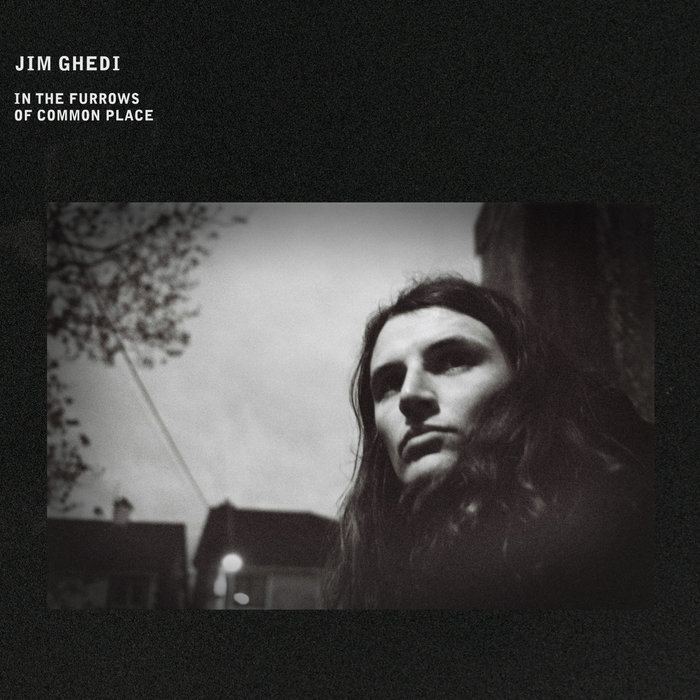Very few musicians can conjure a sense of place quite like Jim Ghedi. On his third full-length album In The Furrows Of Common Place, the Sheffield-based folk bloke (blolke?) finds inspiration from the wild, dramatic landscapes of the Outer Hebrides, and in the process offers a haunting, reflective alternative to the relentless noise of the digital age.
For someone so young, Jim Ghedi has a startling ability to craft music that feels authentic and lived-in; songs and poems for the land that feel as if they were only recently unearthed and translated from some ancient Celtic manuscript. Lamentations of Round Oak Waters begins as a chunky-knit, organic, 100% grass-fed re-interpretation of Led Zeppelin’s In the Light, slowly coalescing around a hypnotic, droning harmonium, with his shuddering, primordial vocals emerging immediately as a high point.
Ghedi’s voice is dramatic, earnest, seemingly not beholden to any particular accent, and more often than not sounds like he’s singing through clenched teeth. This initially baffling choice of inflection takes a few minutes to get used to, but it works because it has a vaguely primordial feel to it: a spicy melange of the old Norse, English and Pictish languages communicating contemporary, folkish musings about greedy landowners, missing children and crumbling rural industries.
His previous two albums were mainly instrumental offerings, so this is a welcome development. As if to prove a point, Ah Cud Hew is performed entirely acapella, and sounds like a Gregorian chant sung by a boat full of Viking raiders. Should go down smoother than a honeyed turnip with anyone currently indulging in the current sea-shanty trend too.
Elsewhere on the album’s sparse but incredibly efficient eight tracks, the lonesome, meandering, often astoundingly beautiful acoustic licks of Son David and Stolen Ground fit Ghedi’s sombre, aching melodies like a straw hat on a plague victim. Violins, horns and cellos are used minimally but to tremendous effect, gently heightening and drawing out essential little droplets of feeling without overpowering the mix.
It’s not all toiling in the fields and selling your children for dysentery medicine, though; Common Thread and Beneath the Willow are altogether more propulsive and upbeat; violins become fiddles, the drummer can dust off his brushes, and the guitars and banjos are let loose to tumble and dart about like a pair of young foxes. Mytholm is another stand-out track – a feisty violin/12-string guitar duel that sounds like The Devil Went Down to Georgia as performed by mischievous woodland sprites.
With In The Furrows Of Common Place, Jim Ghedi has laid fresh and surprisingly deep tracks in well-trodden soil. This bittersweet, energetic collection of songs is a short but perfectly formed ramble through working-class folk that draws generously on tradition, but rejuvenates it with wagon-loads of complexity and imagination.
